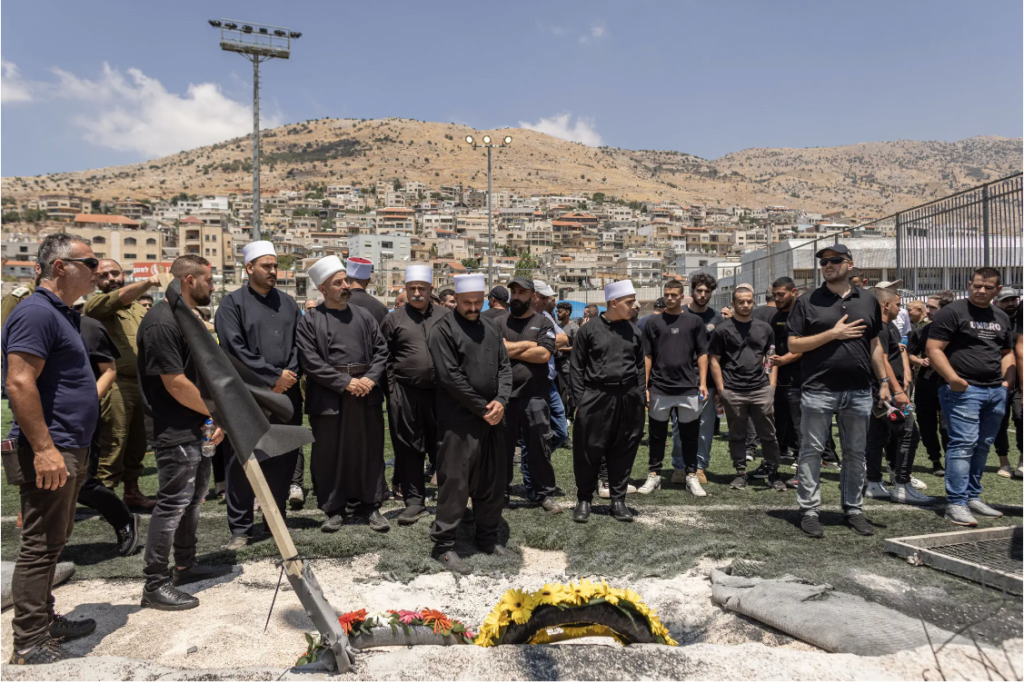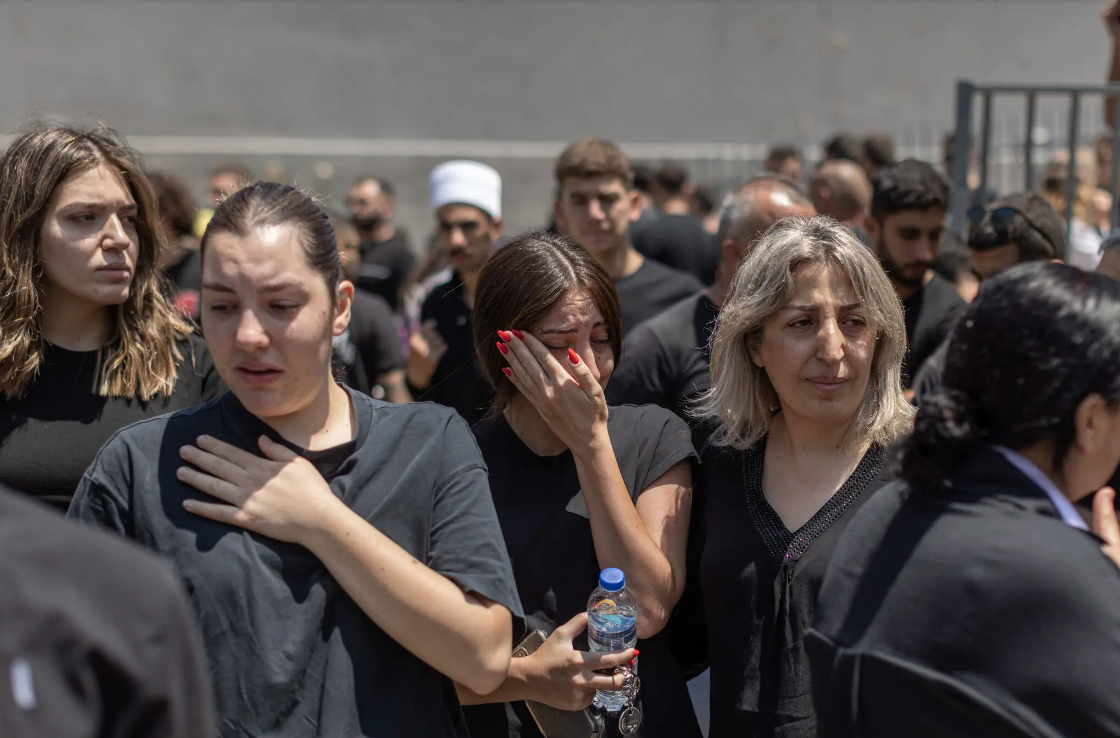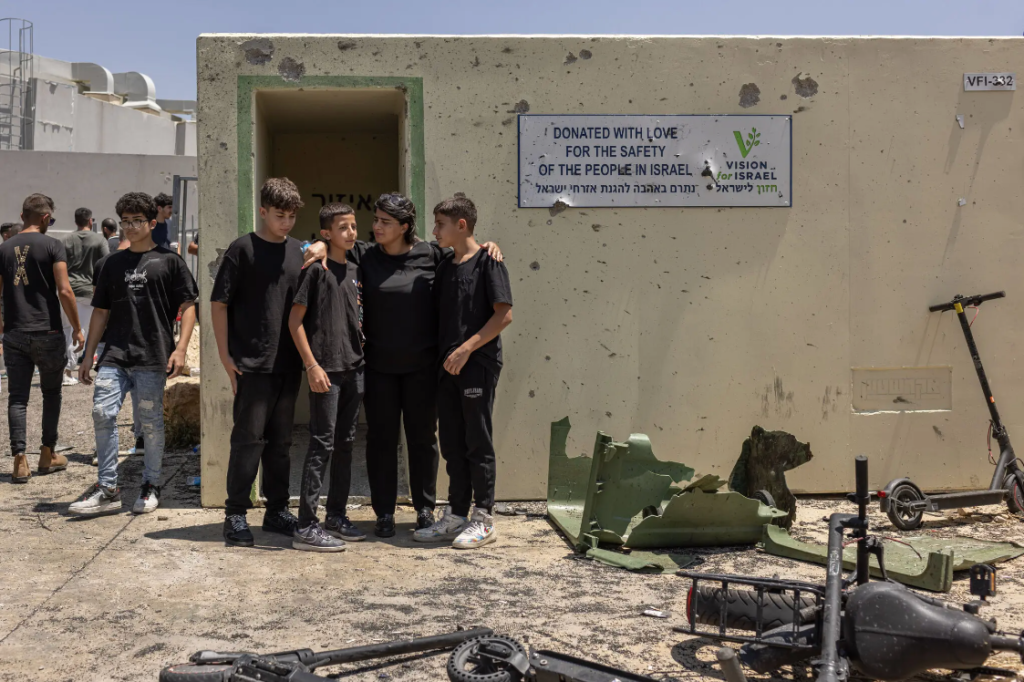A somber atmosphere of shared grief descended upon Majdal Shams, a Druse Arab village in the Israeli-controlled Golan Heights, following the attack from Lebanon.
The rocket hit near a small soccer field enclosed by a chain-link fence, where children from Majdal Shams typically gather to play or watch games.
The day after the tragic incident, a small crater marked the spot where the rocket struck, surrounded by burnt grass. A nearby concrete bomb shelter, now damaged by shrapnel and bloodstains at its entrance, stood as a grim reminder of the attack.
Despite a warning siren sounding at 6:18 p.m. on Saturday, residents said the strike happened too quickly for them to seek shelter.
Jwan Willy, 14, was present at the soccer field during the attack but fortunately escaped harm. He recounted considering running to the shelter but hesitated due to previous false alarms during tensions between Israel and Hezbollah.

Tragically, twelve Druse Arab children, aged 10 to 16, lost their lives in the explosion, with many others sustaining injuries. Israel attributed the attack to Hezbollah, which denied involvement. The Israeli military identified the rocket used as Iranian-made and carrying over 50 kilograms of explosives, a weapon exclusive to Hezbollah in Lebanon.
Jwan, who witnessed the devastation, returned to the field the next day, still processing the loss of his cousins in the attack. His mother mentioned he was still in shock and had not yet fully expressed his emotions.Majdal Shams, a town with around 11,000 residents located on Mount Herman, was filled with a somber atmosphere of mourning on Sunday. The town came to a standstill with closed stores and postponed weddings. People of all ages embraced each other in tears on the streets, dressed in black attire.

Ten of the children were laid to rest in family crypts at the town’s cemetery, while an eleventh child was buried in Ein Qiniyye, another Druse village in the Golan Heights. Israel gained control of the Golan Heights after the 1967 war with Syria and officially annexed the area in 1981, a move not recognized by most countries. Many of the over 20,000 Druse residents in the Golan have opted for permanent residency status instead of Israeli citizenship, with some still considering themselves Syrian and others now identifying as Israelis due to decades of Israeli rule.
The four Druse villages in the Golan, where residents practice a religion linked to Ismaili Islam, are closely-knit communities with interconnected families through marriage. The tragic incident involved twelve children, with the last child identified as Jifara Ibrahim, 11, late on Sunday night.
Following the funerals, a brief ceremony was held on a soccer field, honoring the children with 12 empty chairs draped in black cloth. The crowd observed a moment of silence and listened to speeches before dispersing. Rescue workers meticulously searched the area for any remaining human remains, collecting them in containers.
Amidst the solemnity, there were occasional outbursts of anger from individuals demanding immediate action against Hezbollah, holding the group accountable for the tragedy. Calls for military retaliation or targeting Hezbollah’s leader, Hassan Nasrallah, were voiced by some residents seeking justice for the loss of their loved ones.

